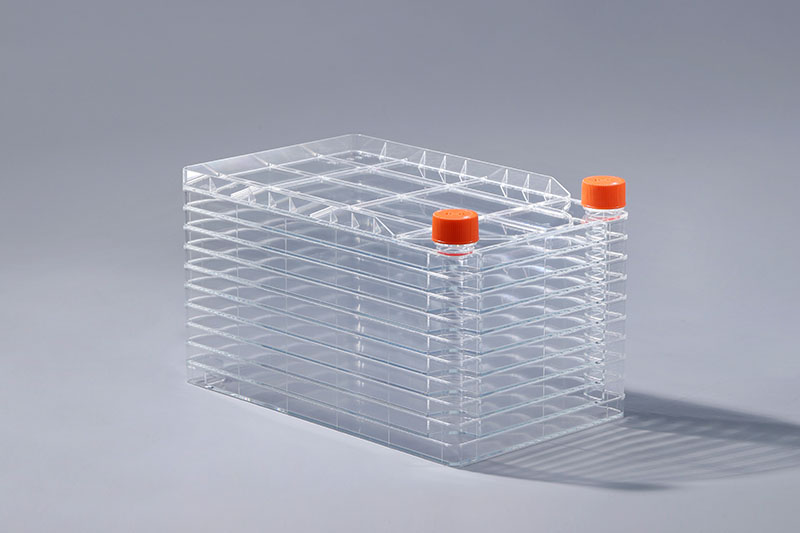Nanobacteria သည် ဆဲလ်ယဉ်ကျေးမှုတွင် မကြာခဏ ကြုံတွေ့ရသည်။ ဆဲလ်များ ညစ်ညမ်းသွားပြီးနောက်၊ ဆက်နွယ်နေသော ကြီးထွားမှုကို အချိန်တိုအတွင်း ထိခိုက်စေမည်မဟုတ်သည့်အပြင် ဘက်တီးရီးယားနှင့် မှိုများကဲ့သို့ လျင်မြန်စွာ အဝါရောင် သို့မဟုတ် စိမ်းစိုနေမည်မဟုတ်ပါ။ ဒါကြောင့်
နှင့် ဆဲလ်အပေါ် သက်ရောက်မှုကြီးမားပါက၊ အခြေအနေအရ၊ ၎င်းတို့ကို ပုံမှန်အခြေအနေများတွင် တိုက်ရိုက်စွန့်ပစ်သင့်သည်။ ဆဲလ်များသည် အလွန်တန်ဖိုးရှိပါက ၎င်းတို့အား primaquine၊ sulfa၊ tetracycline၊ benil တို့ဖြင့် ဆေးကြောနိုင်ပြီး အရည်အသွေးမြင့် တစ်ခါသုံးဆဲလ်ယဉ်ကျေးမှု စားသုံးနိုင်သောပစ္စည်းများနှင့် ဆက်စပ်သော ယဉ်ကျေးမှုဆိုင်ရာ ဓာတ်ပစ္စည်းများကို တတ်နိုင်သမျှ အမြန်ဆုံး အစားထိုးနိုင်ပါသည်။
ဆဲလ်ယဉ်ကျေးမှုအတွက် ဆဲလ်စက်ရုံကိုအသုံးပြုသည့်အခါ၊ နာနိုဗက်တီးရီးယားပိုးမွှားများကို ကာကွယ်ရန် အဓိကအချက်မှာ ယဉ်ကျေးမှုစနစ်အတွင်းရှိ sera ကို တားဆီးရန်ဖြစ်သည်။ ယဉ်ကျေးမှုစနစ်ရှိ sera အများအပြားသည် အပူဓာတ်မရအောင် ကုသခြင်းကို ခံယူခဲ့ကြသည်။ ပိုလီမာများကို ၎င်းတို့၏ အမှုန်အမွှားများနှင့် Brownian ရွေ့လျားမှုကြောင့် ဇီဝဗေဒအဖြစ် သတ်မှတ်သည်။ ထို့ကြောင့်၊ သွေးရည်ပျော်မှုဖြစ်စဉ်တွင် gradient ကုသမှုကို လုပ်ဆောင်သင့်ပြီး တတ်နိုင်သမျှ 4°C တွင် ဖြည်းဖြည်းချင်း အရည်ပျော်သင့်သည်။ and have a great impact on the cell state, they should be discarded directly under normal circumstances.If the cells are very precious, they can be washed with primaquine, sulfa, tetracycline, benil, and replace high-quality disposable cell culture consumables and related culture reagents as soon as possible.
When using a cell factory for cell culture, the key to preventing Nanobacteria contamination is to prevent the sera in the culture system in question. Many of the sera in the culture system have undergone heat inactivation treatment. Polymers are considered biological because of their small particles and Brownian motion. Therefore, gradient treatment should be performed during the process of serum melting, and it should be slowly melted at 4 °C as much as possible.
The FAI climbed 5.9 percent year-on-year in the first 11 months of 2018, quickening from the 5.7-percent growth in Jan-Oct, the National Bureau of Statistics (NBS) said Friday in an online statement.
The key indicator of investment, dubbed a major growth driver, hit the bottom in August and has since started to rebound steadily.
In the face of emerging economic challenges home and abroad, China has stepped up efforts to stabilize investment, in particular rolling out measures to motivate private investors and channel funds into infrastructure.
Friday's data showed private investment, accounting for more than 60 percent of the total FAI, expanded by a brisk 8.7 percent.
NBS spokesperson Mao Shengyong said funds into weak economic links registered rapid increases as investment in environmental protection and agriculture jumped 42 percent and 12.5 percent respectively, much faster than the average.
In breakdown, investment in high-tech and equipment manufacturing remained vigorous with 16.1-percent and 11.6-percent increases respectively in the first 11 months. Infrastructure investment gained 3.7 percent, staying flat. Investment in property development rose 9.7 percent, also unchanged.
 English
English



















































